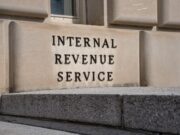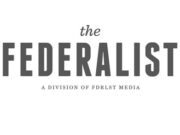Yesterday morning, the Senate Judiciary Subcommittee on Crime and Terrorism held a hearing on “Current Issues in Campaign Finance Law Enforcement.” With representatives from DOJ and IRS as the central focus of the hearing, subcommittee Chairman Sen. Whitehouse emphasized two main issues: 1) Why the two agencies are not prosecuting certain 501(c)(4) organizations for making allegedly false statements on IRS Form 1024, Question 15; and 2) Why the agencies are not prosecuting certain contributors who gave money to super PACs through intermediary entities for alleged violations of 2 U.S.C. 441f.
(CCP Chairman Brad Smith did a great job on the second panel of putting the issues in proper perspective.)
Regarding the first issue, several 501(c)(4) groups have recently come under fire for applying as tax-exempt organizations because they declared they did not “plan to spend any money attempting to influence the selection, nomination, election, or appointment of any person to any Federal, state, or local public office or to an office in a political organization.” Some critics, including Sen. Whitehouse, claim those applications were false because those groups soon went on to sponsor ads that allegedly constituted “political intervention” under IRS standards.
However, as tax attorney Gregory Colvin, another hearing witness, explained in his testimony, the IRS determines “political intervention” using an open-ended and incredibly vague “facts and circumstances” approach. Under the agency’s inconsistent and inconclusive guidance, it may have been perfectly reasonable for these organizations to believe their activities did not, in fact, constitute the type of “political intervention” that required them to answer Question 15 on IRS Form 1024 in the affirmative. As IRS Deputy Chief of Criminal Investigations Patricia Haynes explained, one cannot be prosecuted for making false statements to the IRS unless one does so “willfully and knowing it was false.” In other words, guessing wrong under the IRS’s nebulous standards is not an actionable offense, and thus Sen. Whitehouse simply had no basis to support his first premise.
Sen. Whitehouse’s fared no better on his second issue – whether individuals who gave contributions to super PACs through intermediary entities, thereby shielding themselves from being listed on FEC reports, violated the law. 2 U.S.C. 441f provides that “No person shall make a contribution in the name of another person…” As I have written, this statute, which was enacted long before the advent of super PACs, arguably does not apply to these types of super PAC contributions. CCP’s Brad Smith has suggested that the statute possibly applies. Reasonable attorneys who are well-versed in campaign finance law may disagree about this question. As before, given the ambiguity in this law, any criminal prosecution in this area would raise grave due process issues.
If there is anything to be gained from yesterday’s proceedings, hopefully it is a recognition by Sen. Whitehouse that the “Current Issues in Campaign Finance Law Enforcement” are not as black-and-white as he believed going into the hearing.














